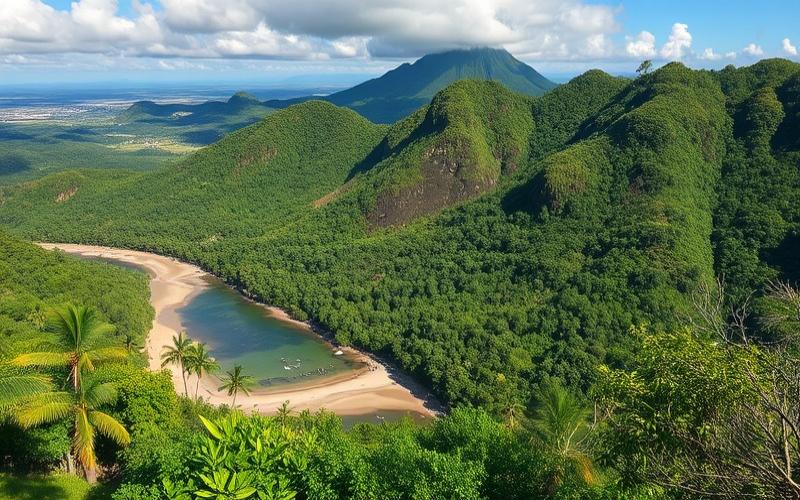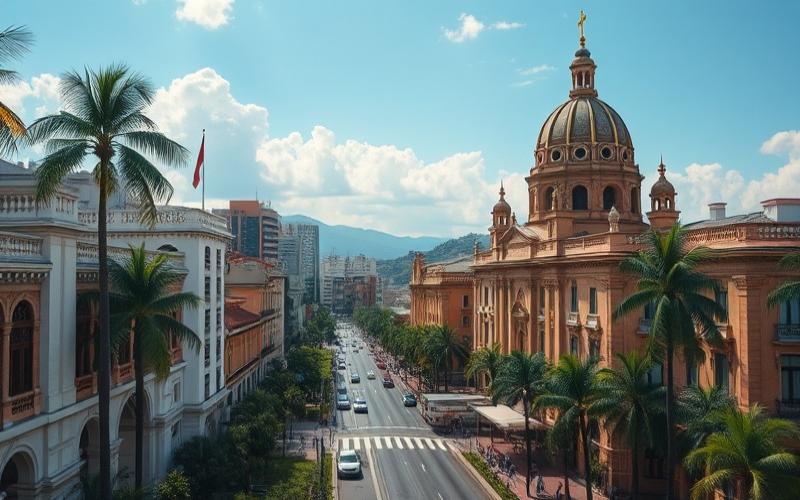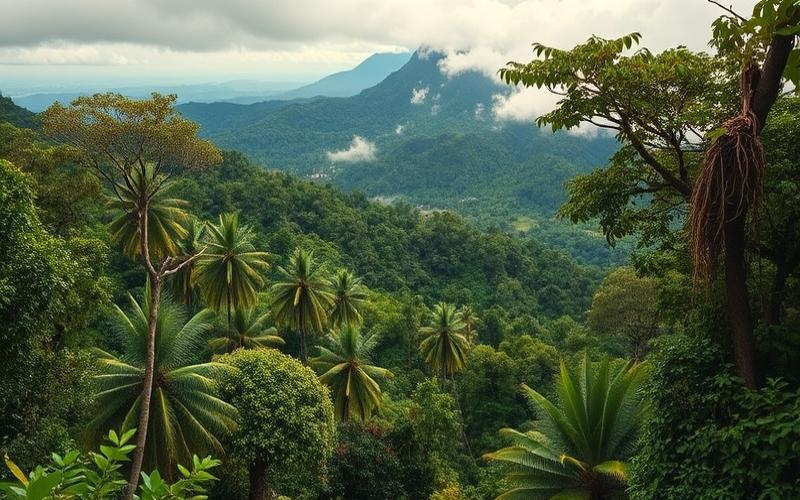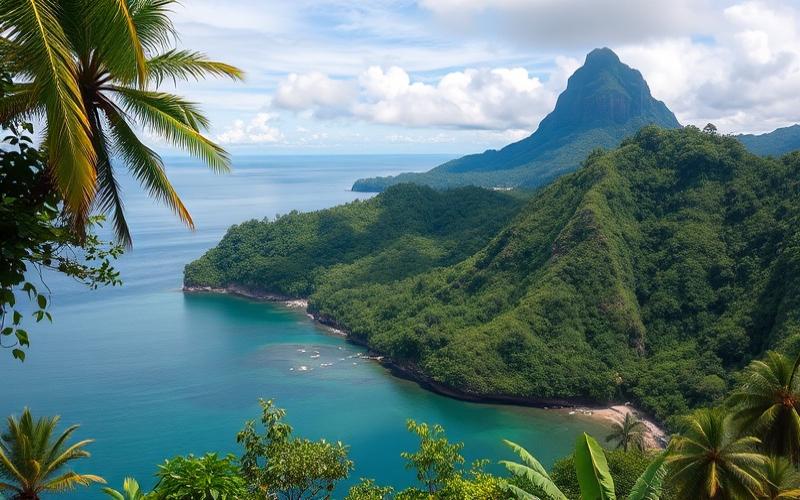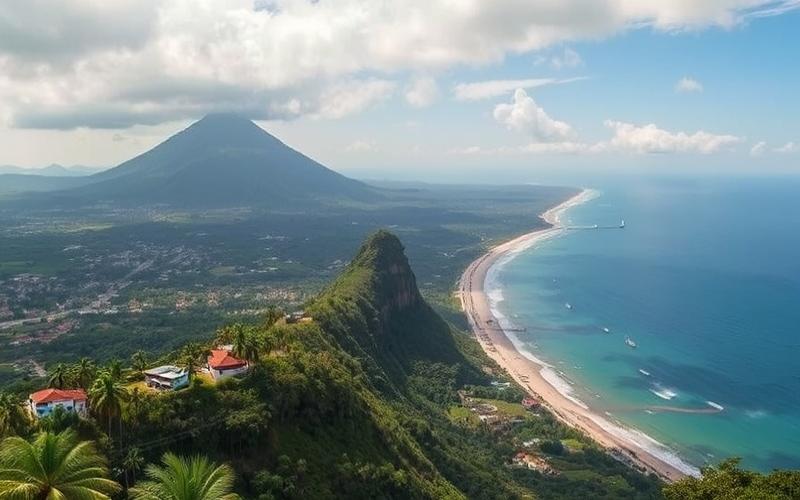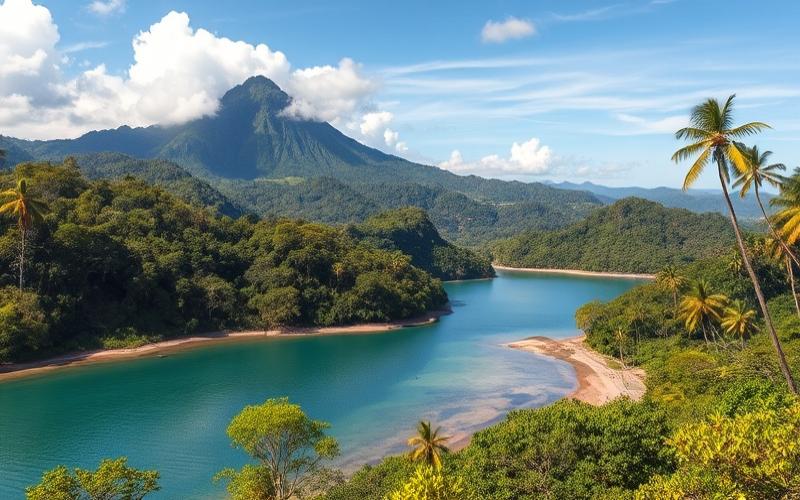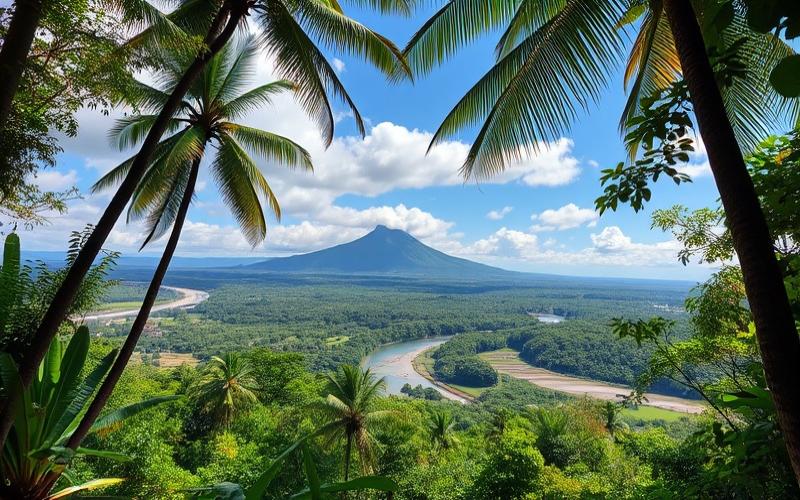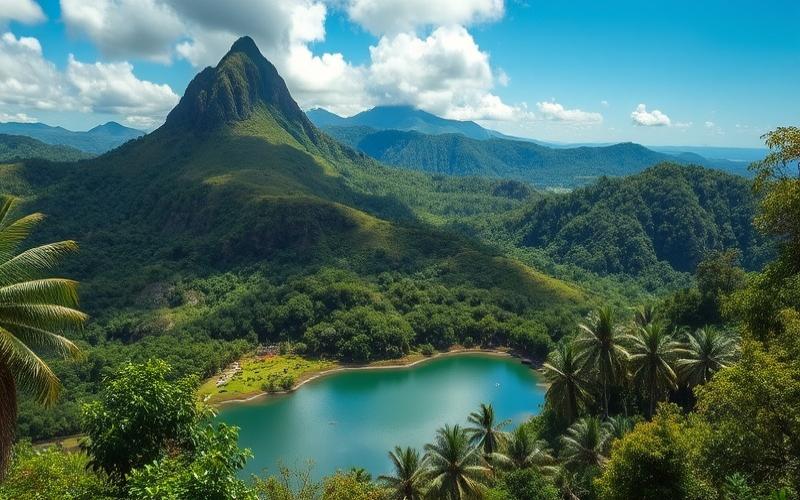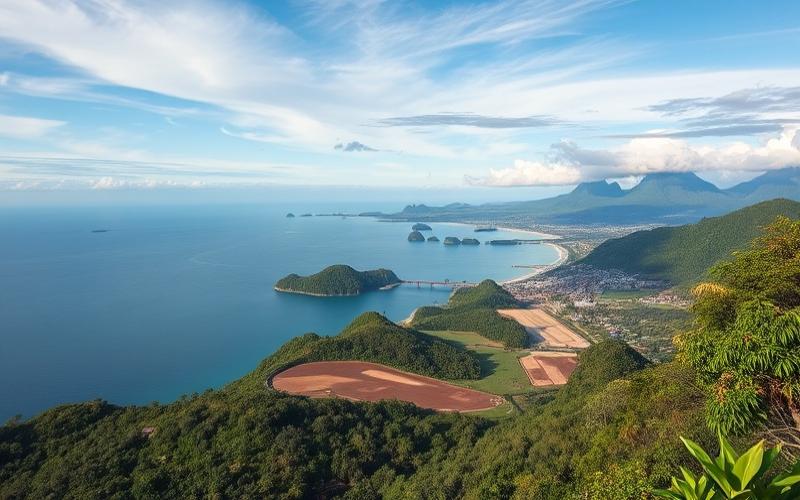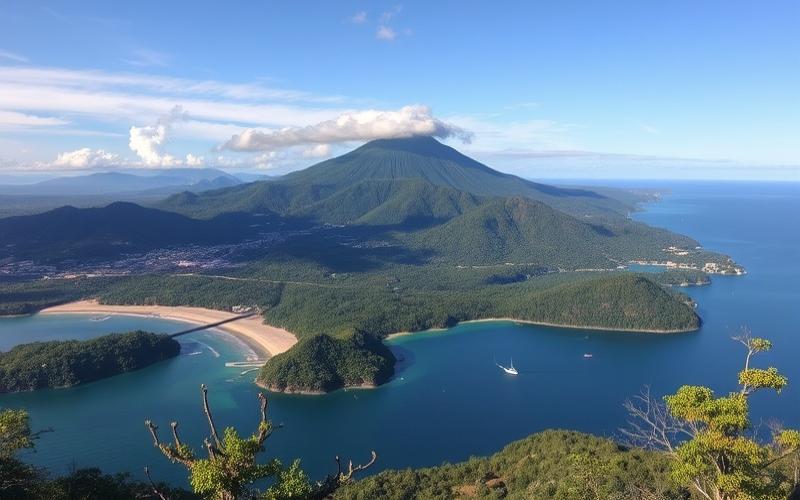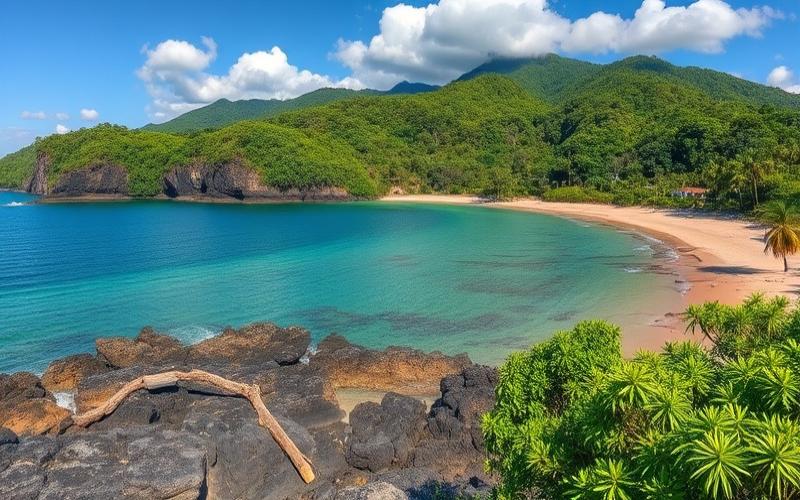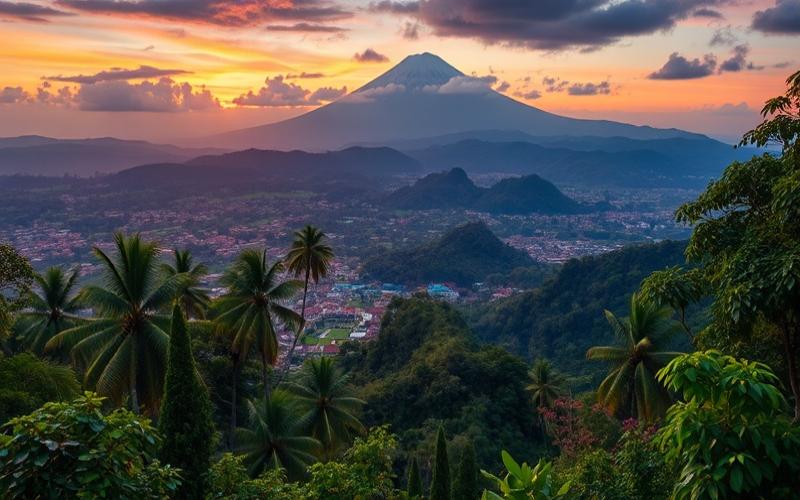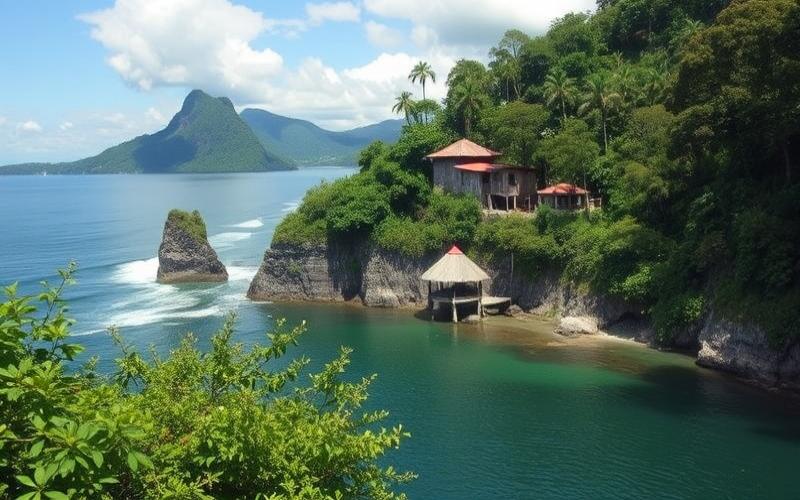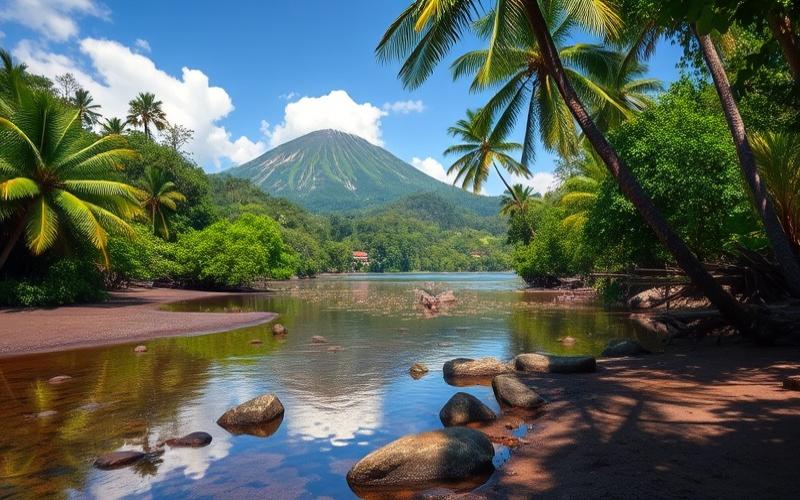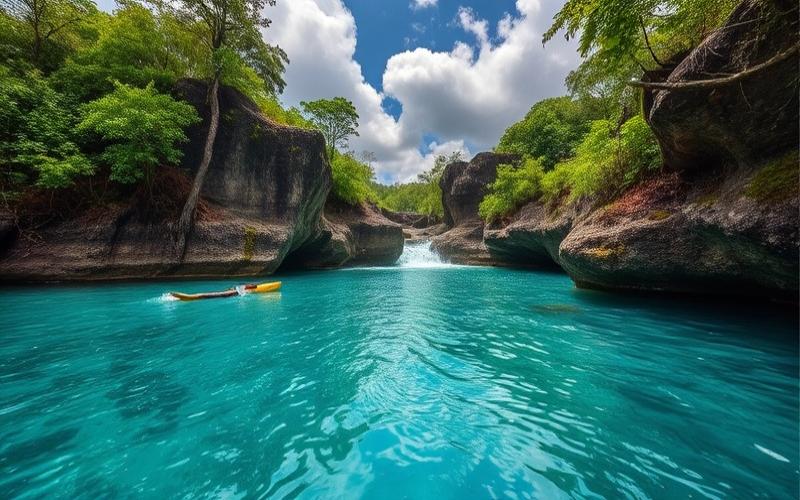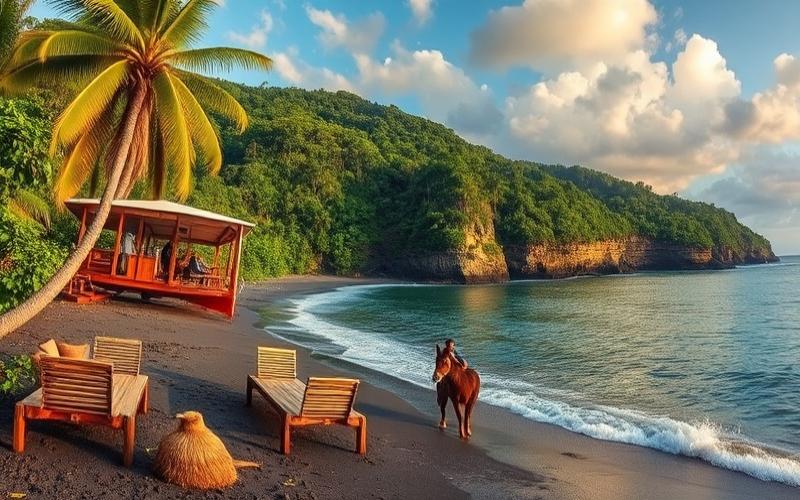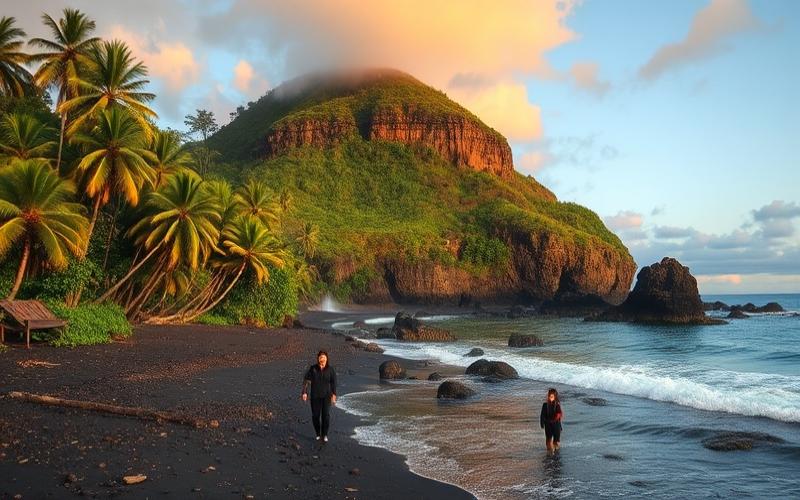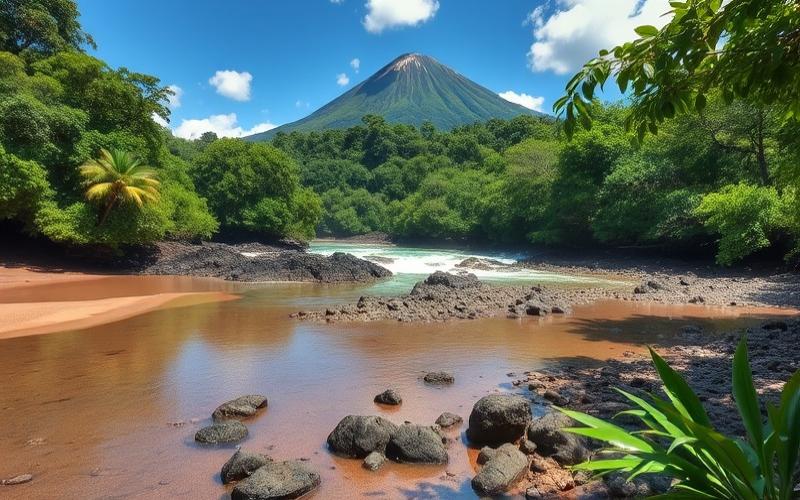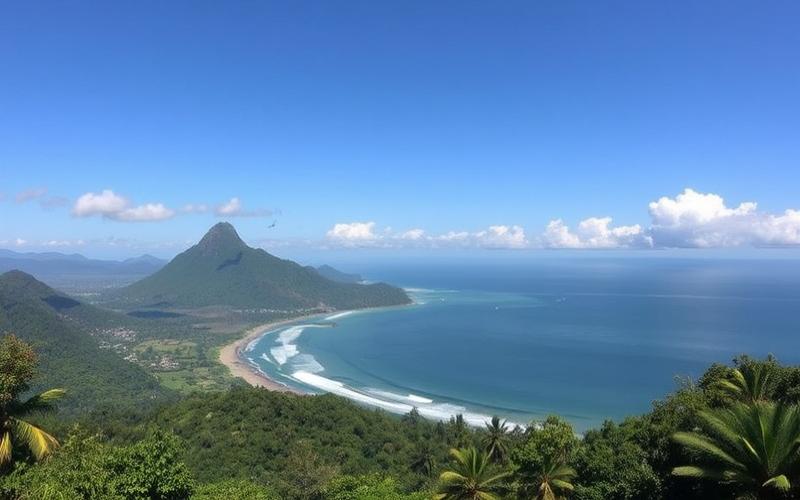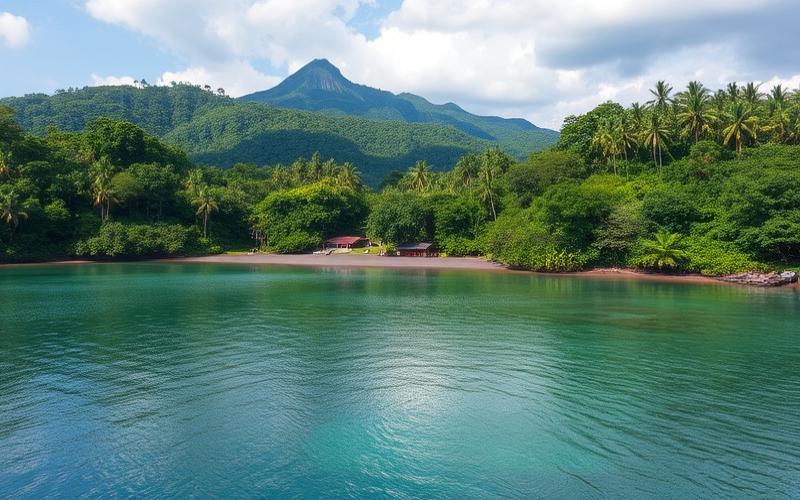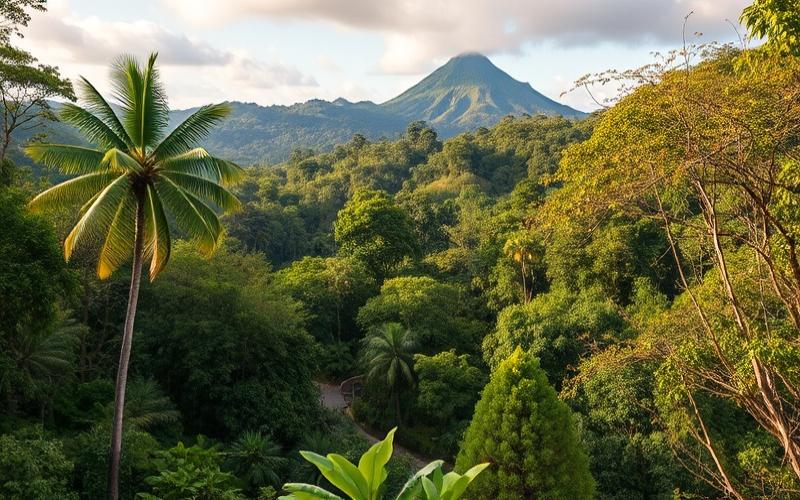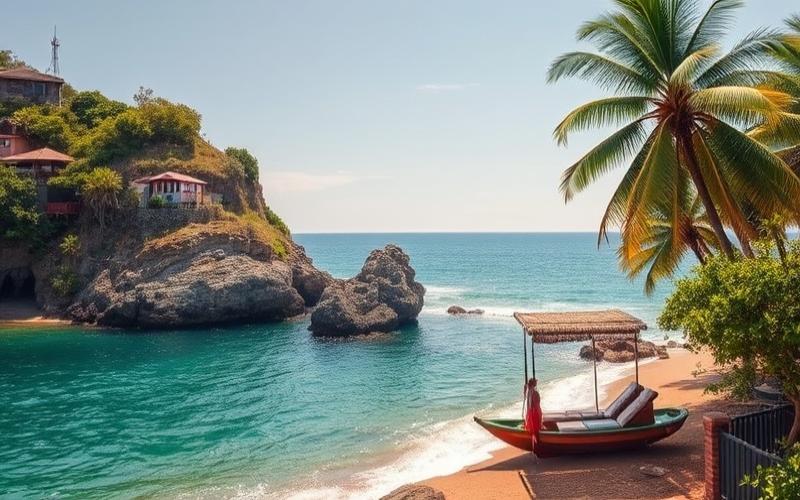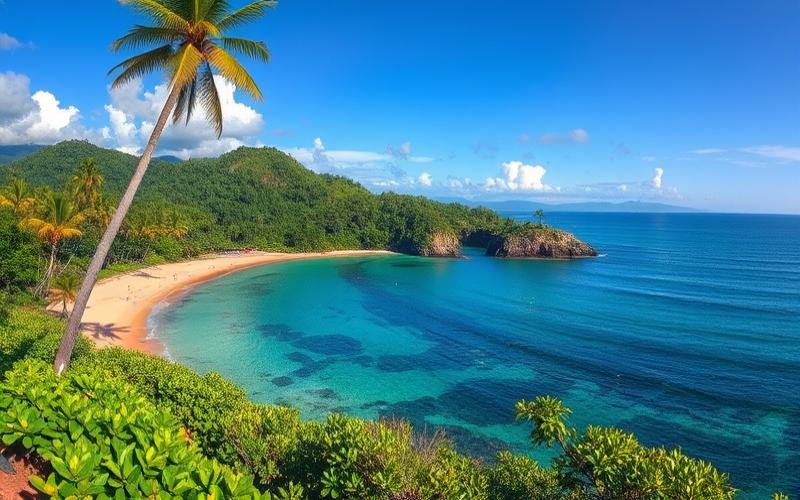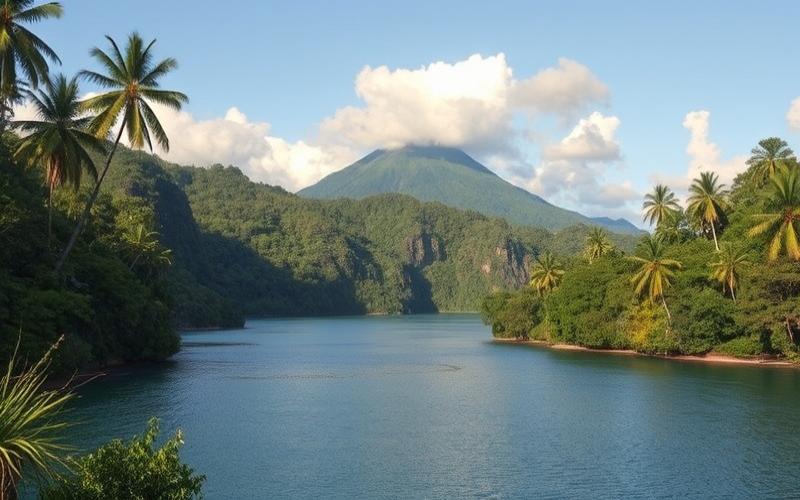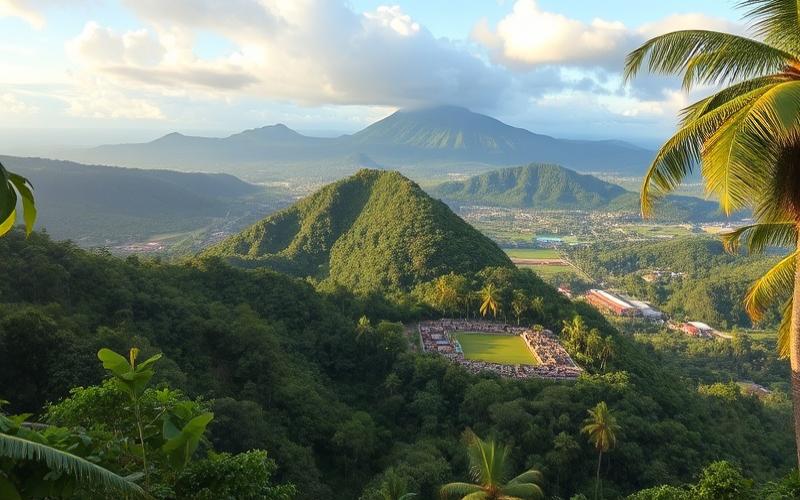
 Published on and written by Cyril Jarnias
Published on and written by Cyril Jarnias
Considering Buying Agricultural Land in Costa Rica?
This guide is designed to decipher the complex legal puzzles related to acquiring agricultural land in this vibrant, biodiversity-rich Central American country.
From its land ownership laws to specific environmental regulations, this guide will accompany you through every step of the process, ensuring your investment is not only profitable but also compliant with local legal requirements.
Dive into this world of rural opportunities, where natural beauty meets a carefully structured legal framework, and prepare to turn your dream of land ownership into a rewarding reality.
Overview of Agricultural Land Purchase Laws in Costa Rica
Key Regulations Regarding Foreigners Purchasing Agricultural Land
- Foreigners, whether residents or non-residents, have the right to buy and own agricultural land in Costa Rica, with no nationality or residency restrictions.
- There are no specific quotas or limitations on the area that can be acquired by a foreign individual or legal entity.
- The only exceptions concern maritime zones (the 200-meter zone from the high-tide line), where private ownership is strictly regulated and foreigners can only own up to 49% of a concession.
Land Ownership Restrictions for Non-Residents
- There are no specific restrictions imposed on non-residents for purchasing agricultural land, unlike some neighboring countries that impose strict limitations.
- Foreigners enjoy the same rights as Costa Rican citizens for land ownership, except in the case of maritime zone concessions.
Administrative Procedures for Purchasing Agricultural Land
- Land selection and price negotiation with the seller.
- Verification of the land’s legal status (property title, absence of debts or mortgages, land use).
- Signing a purchase contract before a public notary.
- Registration of the transaction with the Costa Rican National Registry (Registro Nacional), which formalizes the property transfer.
- Payment of transfer taxes and fees (approximately 2.5% to 3.5% of the sale price).
Property Rights and Types of Leases/Concessions
- Property rights are guaranteed by law and registered with the National Registry.
- There are mainly two forms of land holding:
- Full Ownership: Complete and definitive possession of the land, with all attached rights.
- Concession: Primarily for land located in maritime zones; this is a renewable usage right subject to conditions and limitations (e.g., max 49% for foreigners).
- Private agricultural leases are possible, with their duration and terms defined contractually.
| Type of Holding | Access for Foreigners | Main Restrictions | Duration |
|---|---|---|---|
| Full Ownership | Yes | None (outside maritime zones) | Unlimited |
| Maritime Concession | Yes (max 49%) | Max 49% for foreigners | 5 to 20 years, renewable |
| Private Agricultural Lease | Yes | No legal restrictions, contractual only | Defined by contract |
Associated Tax Obligations
- Payment of annual property tax (0.25% of the property’s fiscal value).
- Payment of transfer tax during the transfer (approximately 2.5% to 3.5%).
- Declaration of any agricultural income within the framework of income tax.
Examples of Legislative Precedents and Practical Cases
- Many foreign investors, particularly from North America and Europe, have acquired coffee, pineapple plantations, or forests, mostly in their own names or through a local company (Sociedad Anónima or Sociedad de Responsabilidad Limitada).
- There are no recent documented cases of restrictions or expropriations specifically targeting foreigners for agricultural land, reinforcing the country’s legal stability in this area.
- In the context of maritime zones, disputes have occurred regarding concession renewals or non-compliance with the 49% rule, highlighting the importance of strictly adhering to the specific legislation for these areas.
Key Takeaway: In Costa Rica, foreigners can buy and own agricultural land without major restrictions, except in maritime zones where specific rules apply. The procedures are transparent and secure, provided local tax and administrative obligations are respected.
Good to Know:
In Costa Rica, the purchase of agricultural land by foreigners is widely accessible, although subject to certain specific regulations. The legislation does not impose strict restrictions on land ownership for non-residents, except for land located in the maritime terrestrial zone, where foreigners can only own up to 49% of the shares in a concession. Buyers must ensure that property titles are duly registered with the National Registry, a crucial step to secure their investment. Types of leases include simple rental contracts and concessions, especially in protected areas. Investors are subject to tax obligations, including the annual payment of property tax based on local assessment. Recently, a notable case involved illegal acquisitions by foreign companies in natural reserves, highlighting the importance of complying with current conservation laws. The services of a specialized real estate attorney are highly recommended to navigate these complex procedures.
Tips to Avoid Risks Related to Non-Buildable Land
The legal criteria for buildability in Costa Rica are based on several national and municipal regulations, which apply specifically to agricultural land. Here are the main elements to consider, along with practical advice and strategies to limit risks.
Legal Buildability Criteria
- Zoning (Uso de Suelo): Agricultural land is generally subject to specific zoning that limits buildable uses. The municipality defines permitted activities (housing, agricultural operations, etc.), density, and minimum lot sizes.
- Cadastral Plan (Plano Catastrado): The land must be duly registered with the national registry, with an official cadastral plan.
- Compliance with Local Urban Plans: The Planes Reguladores specify construction rules, mandatory setbacks, building heights, etc.
- Building Permit: It is mandatory to obtain a permit issued by the municipality after validation by the Colegio Federado de Ingenieros y Arquitectos (CFIA).
- Environmental Impact Study: For agricultural land, any construction or change of use may require an environmental impact study validated by SETENA (National Technical Environmental Secretariat).
| Criterion | Specific Application to Agricultural Land |
|---|---|
| Zoning | Primarily agricultural use, restrictions on subdivision and non-agricultural construction |
| Cadastral Plan | Must correspond to declared agricultural use |
| Urban Plans | Often less flexible than for urban land |
| Building Permit | Requires justification of intended use |
| Environmental Study | Often required even for small constructions |
Administrative Procedures to Follow
- Check the cadastral status and zoning with the national registry and municipality.
- Consult local urban plans to understand applicable restrictions.
- Hire a CFIA-certified architect for project design and procedural support.
- Conduct an environmental impact study and geological study to identify natural or pollution risks.
- Obtain advice from a local attorney or notary specialized in Costa Rican land law to validate land compliance and secure the transaction.
List of Practical Steps to Take
- Consult the national registry to verify ownership and any encumbrances.
- Request a land use certificate from the municipality.
- Review regulatory plans and zoning regulations.
- Commission an environmental and geological study.
- Be accompanied by a specialized attorney or notary.
- Check for easements, access restrictions, or right-of-way issues.
Potential Risks to Anticipate
- Environmental restrictions (protected areas, biological corridors, proximity to rivers).
- Zoning limitations prohibiting residential or commercial construction.
- Unidentified geological risks (landslides, floods).
- Presence of easements or property disputes.
Strategies to Minimize Risks
- Thoroughly examine urban plans and consult municipal authorities.
- Require an independent environmental impact study (Estudio de Impacto Ambiental) and geological study before any commitment.
- Include a contingency clause in the purchase contract related to obtaining building permits.
- Request a comprehensive legal audit by a local professional.
Key Takeaways
Consulting a Costa Rican attorney or notary specialized in land law is essential to secure the purchase and buildability of agricultural land.
Conducting a preliminary environmental impact and geological study helps avoid hidden defects and subsequent administrative blockages.
Good to Know:
To avoid risks associated with purchasing non-buildable land in Costa Rica, it’s crucial to understand the legal criteria defining buildability, often influenced by zoning restrictions and environmental regulations specific to agricultural land. Consult a local attorney or experienced notary in land law to verify the land’s viability, as they can clarify potential limitations, such as those concerning ecosystem protection or land located in flood-prone areas. It’s recommended to commission an environmental impact and geological study to detect potential hidden defects. Additionally, check local urban plans to anticipate zoning changes and minimize risks. These precautions help avoid costly mistakes, ensuring the chosen land can be used according to your investment plans.
Understanding Rural Zoning and Building Permits
Rural Zoning Categories in Costa Rica and Impact on Agricultural Land Acquisition and Use
Costa Rica distinguishes several rural zoning categories, each defining permitted uses and development restrictions:
- Agricultural Zone (Parcelas Agrícolas)
- Minimum land area of 5,000 m² outside the Greater Metropolitan Area (GAM) and 7,000 m² within the GAM.
- Generally, only agricultural or agrotourism-related uses are permitted.
- Construction is limited to approximately 15% of the surface area, often with a restricted number of buildings and secondary residential functions.
- Price per square meter is lower than for urban land.
- Possibility of category change towards residential or tourist uses under certain conditions, which can offer more flexibility in the medium term.
- Rural Residential Zone
- Allows residential uses with lower densities, sometimes mixed with light agricultural activities.
- Conservation Zone
- Strict environmental protection; construction is very limited, often prohibited except for exceptions (scientific research, minimal infrastructure).
- Maritime-Terrestrial Zone (ZMT)
- 200-meter strip from the coastline: the first 50 meters are inalienable and public, the following 150 meters require a special concession and are subject to strict regulatory plans.
Summary Table of Rural Categories
| Category | Minimum Area | Permitted Uses | Construction Limits |
|---|---|---|---|
| Agricultural | 5,000 to 7,000 m² | Agriculture, Agrotourism | 15% of surface area |
| Rural Residential | Variable | Residential, Agriculture | Limited Density |
| Conservation | Variable | Research, Protection | Highly Restricted Construction |
| Maritime-Terrestrial (ZMT) | N/A | Concession, Regulated Tourism | Mandatory Regulatory Plan |
Procedures and Legal Requirements for Obtaining Building Permits on Agricultural Land
- Submission of architectural plans to the local municipality.
- Approval from the Ministry of Health for sanitation and access to drinking water.
- Validation by INVU (National Housing and Urban Planning Institute) for compliance with the regulatory plan.
- Final approval from the College of Engineers and Architects of Costa Rica.
- Timeline: 3 to 6 months depending on complexity and authority responsiveness.
Local and National Regulations Influencing Purchase
- Municipal Regulatory Plan: Precisely sets permitted uses, density, building height, and infrastructure placement.
- Maritime-Terrestrial Zone Law (Ley Zona Maritima Terrestre 6043): Governs coastal properties.
- National Urban Planning Code: Regulates minimum distances, road access, easements, and connections to public services.
Involved Competent Authorities
- Local Municipality: First point of contact for procedures and permit issuance.
- INVU: Verification of compliance with urban plans.
- Ministry of Health: Sanitation and public health.
- College of Engineers and Architects: Technical validation of plans.
- National Registry: Registration of real rights and property titles.
Practical Tips for Foreign Investors
- Systematically verify zoning with the municipality and obtain written certification of permitted land use.
- Commission a cadastral survey and legal study by an independent Costa Rican notary.
- Consult the municipal regulatory plan to understand specific restrictions for the targeted land.
- Request an environmental impact study if the land is near protected areas or ecological interest zones.
- Plan for administrative delays and anticipate procedures by surrounding yourself with local professionals (architect, attorney, engineer).
- Stay informed about zoning modification projects that could affect the land’s future value or use.
Good to Know:
Costa Rica divides rural land into different zones that impact the acquisition and use of agricultural land, such as agro-ecological and forest zones. Each zone has specific regulations regarding land use, sometimes influencing the possibility of construction. To obtain a building permit on agricultural land, it’s essential to comply with local legal requirements, which include obtaining approval from the Dirección General de Urbanismo and adhering to environmental regulations established by SETENA. Foreign investors should meticulously verify land zoning with the relevant municipalities to avoid legal complications, and it’s advisable to collaborate with local experts to facilitate the administrative process. Particular attention to laws from the Instituto de Desarrollo Agrario, which may impose restrictions on the purchase of large agricultural land by non-residents, is crucial to avoid legal troubles.
Crucial Legal Aspects for Foreign Investors
Specific Regulations Concerning Land Ownership by Foreigners in Costa Rica:
- Absence of General Restrictions: Foreigners can acquire and own properties in Costa Rica with the same rights as local citizens.
- Main Exceptions:
- Maritime Zone (First 200 Meters from Shoreline):
- The first 50 meters are inalienable (state property).
- The following 150 meters fall under a concession regime, accessible under strict conditions and sometimes reserved for residents or local companies majority-owned by Costa Ricans.
- Protected Areas, Natural Reserves, River Mouths, Islands: Acquisition prohibited or strictly regulated.
- Maritime Zone (First 200 Meters from Shoreline):
| Type of Property | Accessibility to Foreigners | Main Remarks |
|---|---|---|
| Titled Property | Yes | Full ownership registered with national registry |
| Concession Property | Partially (under conditions) | Primarily maritime zone; restrictions for non-residents |
| Maritime Zone | No (except residency or adapted local company) | Requires specific status |
– A foreigner can purchase in their own name or through a Costa Rican company.
Land Registration Requirements and Purchase Procedures:
- Preliminary Verification:
- Analysis of the property title with the Costa Rican National Registry.
- Verification of absence of mortgages, encumbrances, or disputes.
- Purchase Contract:
- Drafting by a Costa Rican public notary (mandatory).
- Deposit of a down payment into an escrow account (optional but recommended).
- Signing and Registration:
- Signing of the deed before a notary.
- Mandatory registration with the National Registry to ensure validity and enforceability of the transfer.
Rights and Obligations of Foreign Owners Regarding Taxes and Levies on Agricultural Land:
- Property Taxes:
- All owners, foreign or national, pay an annual property tax calculated on the cadastral value of the property.
- Other Potential Taxes:
- Luxury tax (for high-value properties).
- Tax on rental income if the property is leased.
- No capital gains tax upon resale for individuals (except in cases of commercial activity).
- Inheritance Rights:
- No local inheritance tax, but potential taxation in the heir’s country of residence according to its own legislation.
Legal Purchase Procedures – Summary of Steps:
- Land selection and verification of property title.
- Signing of a purchase promise contract (optional).
- Payment of a down payment (often into an escrow account).
- Drafting of the purchase deed by a Costa Rican public notary.
- Signing of the authentic deed in the presence of the notary.
- Registration of the transaction with the National Registry.
Main Contractual Obligations:
- Payment of price and registration fees.
- Compliance with any easements or usage restrictions specified in the title.
Importance of Consulting Local Legal Experts:
It is highly recommended to use a Costa Rican attorney or public notary specialized in land law.
- The specifics of Costa Rican law, title verification, identification of risks (encumbrances, disputes, usage restrictions) require local expertise.
- Professional assistance allows you to:
- Ensure transaction compliance with current legislation.
- Minimize risks of nullity or future disputes.
- Avoid fraud, particularly regarding untitled properties or in maritime zones.
- A local expert is also indispensable for drafting the deed and registration, which condition the validity of the transfer.
List of Key Points to Watch:
- Always verify property registration with the National Registry.
- Inquire about the land’s legal category (titled, concession, possession).
- Analyze any usage restrictions.
- Calculate tax costs and ancillary fees (notary, registration, taxes).
- Plan for the involvement of a local legal professional for each key step.
Good to Know:
Foreign investors can freely purchase agricultural land in Costa Rica, but they must register with the National Registry to guarantee their property rights. However, it’s crucial to meticulously verify property titles to avoid disputes and ensure the land is not located in a protected area, where purchase by foreigners might be limited. Regarding taxation, foreign owners are subject to the same property taxes as locals and must also pay capital gains taxes upon resale. It’s essential to engage specialized real estate attorneys to navigate these complex procedures, minimize legal risks, and ensure compliance with local laws, particularly for correctly drafting sales contracts and understanding the implications of potential easements or environmental restrictions.
Disclaimer: The information provided on this website is for informational purposes only and does not constitute financial, legal, or professional advice. We encourage you to consult qualified experts before making any investment, real estate, or expatriation decisions. Although we strive to maintain up-to-date and accurate information, we do not guarantee the completeness, accuracy, or timeliness of the proposed content. As investment and expatriation involve risks, we disclaim any liability for potential losses or damages arising from the use of this site. Your use of this site confirms your acceptance of these terms and your understanding of the associated risks.

